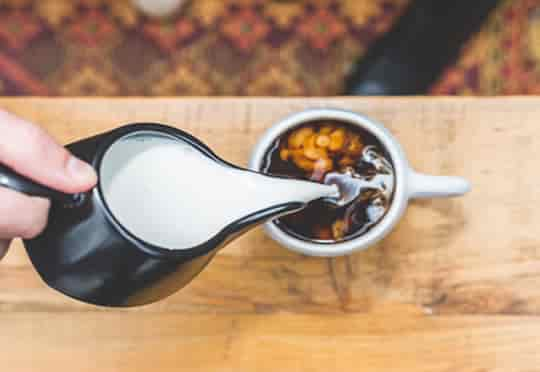Switching to this drink could reduce aging by more than 4 years.
Adults who drink low-fat or non-fat cow’s milk every day could enjoy 4.5 years less of aging.
According to a study, drinking either skimmed or nonfat milk (1 percent milk) reduces biological aging more than drinking high-fat milk (2 percent milk and whole milk).
About 6,000 American adults were examined to see if milk fat consumption and frequency of drinking milk have any impact on telomere length.
The telomere is a region at the end of a chromosome which acts like an aging clock for each cell.
As we get older our telomeres get shorter, causing the cells to age.
Diet is one key to biological aging, for example, habitually eating healthy foods like fruits, vegetables, nuts and seeds and fibre intake is linked to longer telomeres.
Unhealthy foods, like processed meats and high consumption of fats and oils, have been shown to shorten telomeres and speed up biological aging.
This study found that for each 1 percent increase in milk fat (e.g. drinking 1 percent milk versus 2 percent milk) the telomeres were 69 base pairs shorter.
This is is equivalent to more than four years of aging.
The situation was worse for regular whole fat milk drinkers as their telomeres were 145 base pairs shorter than those who often drank non-fat milk.
Professor Larry Tucker, the study’s author, said:
“It was surprising how strong the difference was.
If you’re going to drink high-fat milk, you should be aware that doing so is predictive of or related to some significant consequences.”
Milk contains many nutrients, whole milk contains higher calories but it is richer in vitamin A and vitamin D and some other nutrients compared to nonfat milk.
The fat content of milk may increase inflammation, oxidative stress, and cell aging as well as body weight.
Professor Tucker said:
“Milk is probably the most controversial food in our country.
If someone asked me to put together a presentation on the value of drinking milk, I could put together a 1-hour presentation that would knock your socks off.
You’d think, ‘Whoa, everybody should be drinking more milk.’
If someone said do the opposite, I could also do that.
At the very least, the findings of this study are definitely worth pondering.
Maybe there’s something here that requires a little more attention.”
The study was published in Oxidative Medicine and Cellular Longevity (Tucker, 2019).

